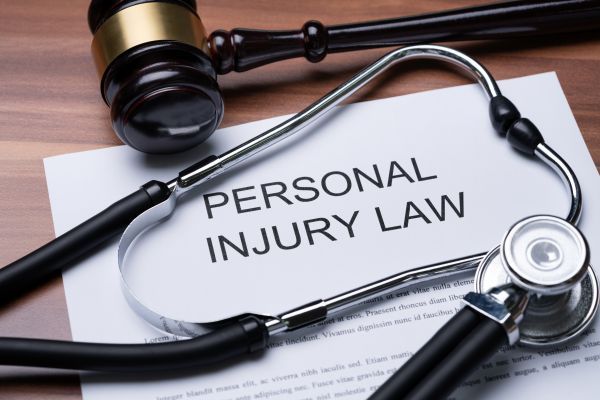When to Pursue a Lawsuit for Failure to Diagnose a Medical Condition
When something is off with your health, you expect your doctor to take you seriously. You expect them to ask the right questions, run the right tests, and give you answers you can rely on. That’s what trust in medical care is built on. That’s why when that trust is broken through a missed or delayed diagnosis, it can be both physically and emotionally damaging. Pursuing a failure to diagnose a medical condition lawsuit is one way to hold a provider accountable when their inaction leads to unnecessary harm.
However, failure to diagnose a medical condition isn’t automatically grounds for a lawsuit. Both the consequences of error and the situation or behavior that led to the missed diagnosis need to be considered.
A medical malpractice suit requires three components:
- The medical provider must have had direct involvement in treating the patient.
- They must have acted negligently.
- The negligence must have caused specific injury to the patient.
While determining a medical professional’s involvement in a case tends to be straightforward, identifying medical negligence and weighing the impact of injury on the patient both require more complex analysis.
If you’ve experienced a failure to diagnose, you might be wondering if your situation qualifies for a medical malpractice suit. Should you contact an attorney? The following information will help you decide.
Recognizing Medical Negligence
A missed diagnosis doesn’t automatically indicate negligence. Medicine is complicated, and even good doctors can make mistakes. Maybe an appointment was unexpectedly rushed or a symptom was misunderstood, for instance.
Medical negligence, on the other hand, occurs when a medical provider fails to meet the reasonable standard of care. That is, they fail to do what any other competent provider would do in the same situation. In terms of failing to diagnose a medical condition, this could range from a doctor ignoring a patient’s symptoms to not following up on a test result. It could be just one missed step that caused everything else to spiral or a string of oversights that together paint a clear picture of negligence.
Ultimately, if other medical professionals with similar training and resources and the same information could have made the correct diagnosis, you might have a case for a lawsuit. The next question is whether the failure to diagnose led to real harm.
Measuring the Impact of the Missed Diagnosis
A missed diagnosis can lead to a wide range of consequences for the patient; not all of them are grounds for a medical malpractice suit. To pursue a lawsuit, failure to diagnose must cause measurable harm.
A few days of discomfort because of a delayed diagnosis might be considered a temporary inconvenience, for instance, while losing the chance of early treatment or learning too late that something serious could have been caught months or years before could have lifelong or even fatal consequences for the patient.
Measurable harm can take a number of forms, including worsening illness, avoidable pain, lost income, or long-term changes to your health. For some conditions, like cancer, infections, or heart problems, for example, every month lost can make treatment harder. Sometimes it means more aggressive or extensive procedures. Sometimes it takes away the chance at a better outcome entirely.
Beyond the medical impact, there’s also the toll it takes on your daily life. A failed or late diagnosis could lead to higher medical bills and lost wages from missed work. Losing sleep and feeling unheard might cause undue stress or pain and suffering.
Your Next Steps
Medical providers are legally expected to meet a certain standard of care, but when they don’t and it leads to actual harm, the law gives you a way to seek accountability.
If you think you have grounds for a failure to diagnose a medical condition lawsuit, it usually starts with getting more information, not in a courtroom. A second medical opinion can provide a fresh set of eyes on your case, confirming what you already suspect, that the diagnosis should have come sooner or that your condition progressed unnecessarily because it didn’t. That medical insight, combined with your documentation, can make the situation clearer.
Next, it’s time to seek legal assistance. Every case is different, and consulting with a medical malpractice attorney will help you understand if your case has merit.
Mind the Timeline
Keep in mind that you only have a certain window to file a malpractice claim. Many people who end up pursuing a failure to diagnose a medical condition lawsuit usually only reach that point after months or even years. The tricky part is that in lawsuits for failure to diagnose a medical condition, the harm isn’t always obvious right away.
But there is a statute of limitations for medical malpractice cases. In Oregon, the limited window is typically two years from when the injury is discovered or should have been discovered. Once that time runs out, even a strong case can be barred. Acting quickly matters because building a case like this isn’t just about filing paperwork. It involves gathering medical records, consulting expert witnesses, and laying out a clear timeline of what went wrong and how it affected your prognosis, treatment options, recovery, finances, and well-being.
Taking legal action isn’t only about compensation, though financial recovery can make a real difference when you’re facing medical bills, lost income, or long-term care needs. It’s also about holding healthcare providers responsible for negligence. That’s why having a firm that understands both the legal complexities and the human side of these situations matters. With the support of the seasoned legal team at Warren Allen LLP, you can move forward with clarity and confidence, knowing your rights are worth standing up for.









